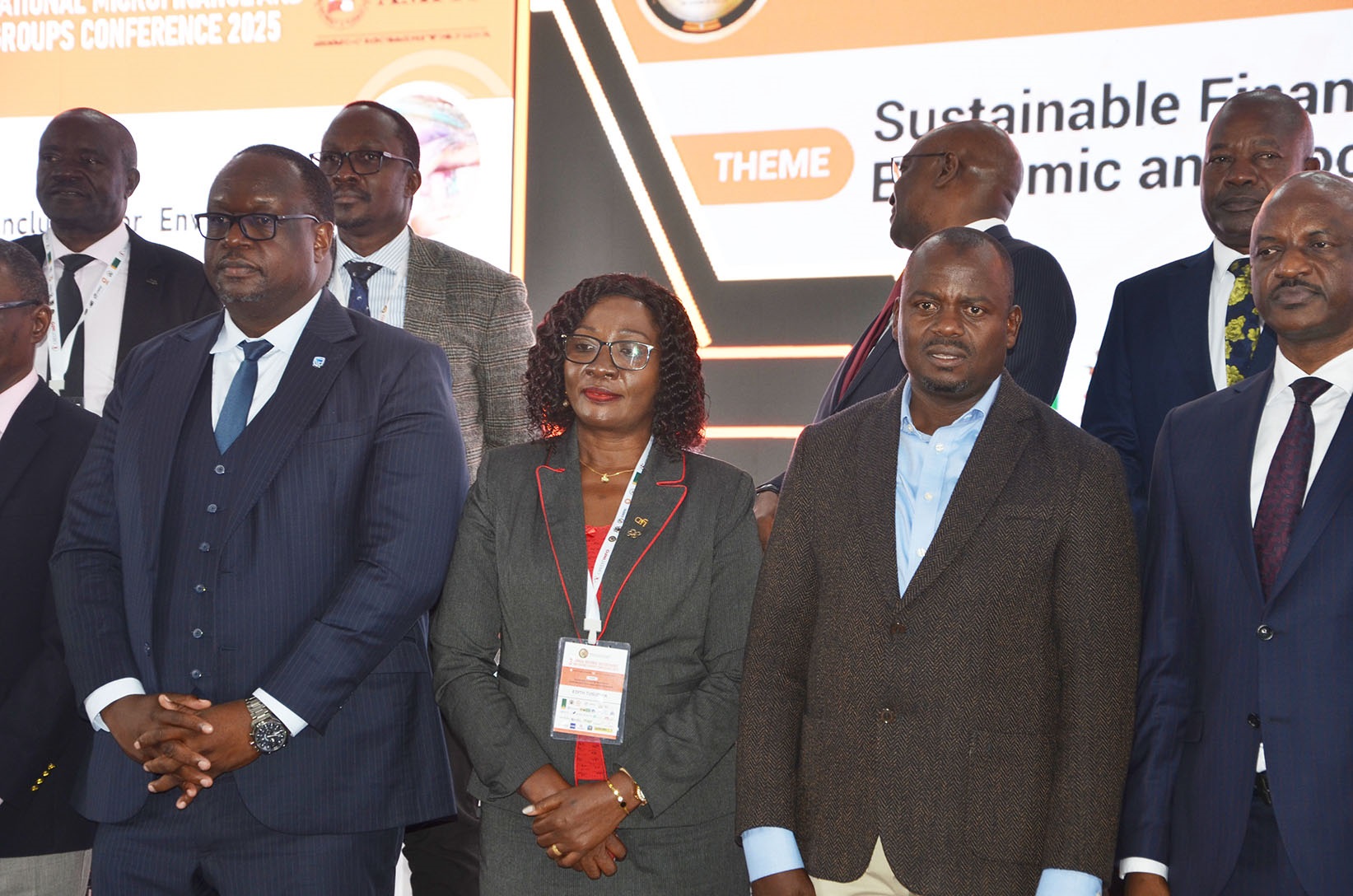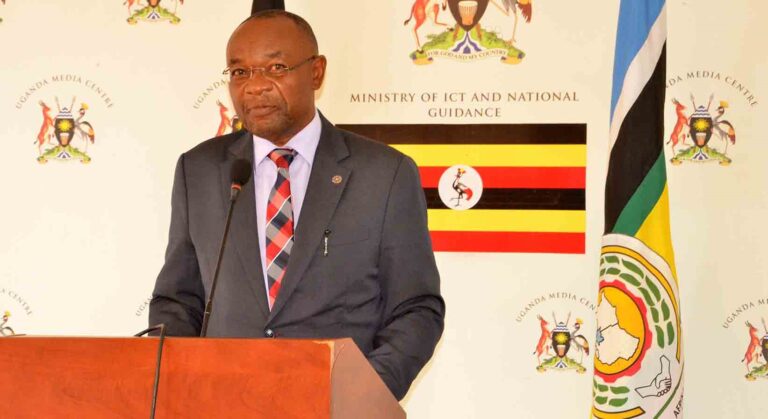
L-R Mumba Kalifungwa, Stanbic Bank's CEO, a lady from the Association of Microfinance Institutions in Uganda (AMFIU), Haruna Kasolo Kyyeyune, the minister of state for Microfinance and Ramathan Ggoobi, the permanent secretary, ministry of Finance during the 3rd Annual National Microfinance and Savings Groups Conference at Hotel Africana, on 10th November 2025 (Photo by John Ricks Kayizzi)
Mumba Kalifungwa, the Stanbic Bank CEO (L), Haruna Kasolo, the state minister for microfinance (2nd R) and Ramathan Ggoobi (R), the Permanent Secretary, ministry of Finance at the 3rd Microfinance Conference at Hotel Africana on Tuesday 10th November 2025
HABARI DAILY I Kampala, Uganda I In order to be licensed and allowed to operate in the country, money lenders will soon be required to have capital base and business premises registered with the regulator, officials have said.
Haruna Kasolo Kyeyune, the state minister for microfinance, said that they have had cases where people who do not have the financial muscle, goes to banks and gets money, and turn themselves into money lenders.
“They usually get money expensively, and end up exploiting our people with high interest rates and selling of collateral entrusted with them,” he said
He said that they will soon institute a legal regime that scrutinises who should become a money lender, with stringent capital requirements.
Kasolo added that the business of issuing as many licenses to many money lenders without stringent requirements is not right.
“Some unscrupulous borrow from money lenders and go and become money lenders, and end up exploiting Ugandans and seizing their property,” he said, during the 3rd National Microfinance and Savings Groups Conference 2025, held at Hotel Africana.
The 2-day conference held between Nov. 10th-11th, was held under the theme: Sustainable Financial Inclusion for Environmental, Economic and Social Impact, brought together over 1,000 people, who included policy makers, civil society advocates, financial service providers and individual customers.
Government has been warning against exploitative practices, and requirements for all money lenders to be licensed, have a physical office, and display their license and interest charges publicly.
Ramathan Ggoobi, the permanent secretary, ministry of finance, planning and economic development, said that as a result of mobile money, many Ugandans are getting financially included.
He noted that saving at home, village savings and loan associations continue to be the predominant savings mechanisms, each accounting for over 40% of the adult population.
“Our people are saving either at home in a separate place or through the mobile money. Research has shown that village savings and loan associations are the most preferred source of credit in Uganda, accounting for over 40% of the adult population,” he said.
He added that convenience and quick access are the predominant drivers of access to credit in Uganda.
“You should lead towards solar adoption, climate smart agriculture and eco-friendly enterprises in line with sustainable development goals and green finance strategy,” he said.
He said that research has also showed that empowering women financially, we achieve better social returns than empowering men.
Kenneth Mumba Kalifungwa, Stanbic Bank Uganda’s chief executive officer, said that when one looks at sustainable finance to drive economic development, they have joined hands with the Government to intensify efforts to make financial inclusion not just a policy objective but a tangible national reality.
“We have made a move to provide additional services through collaboration with other financial service providers such as Pearl Bank, with whom we have joined hands through Flexipay and Wendi, with a combined number of clientele totaling to 2 million around the country,” he said.
Money lenders in Uganda, who are in their hundreds, are currently regulated under the Tier 4 Microfinance Institutions and Money Lenders Act, 2016 overseen by the Uganda Microfinance Regulatory Authority (UMRA), and have an interest rate cap of 2.8% per month on expended loans, they are not required to have a certain amount of operational capital.




